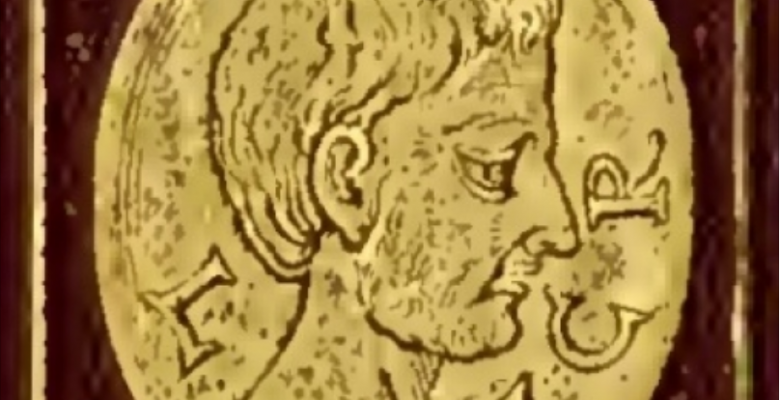Lucretius Today Podcast Episode 244 Is Now Available
Welcome to Episode 244 of Lucretius Today. This is a podcast dedicated to the poet Lucretius, who wrote “On The Nature of Things,” the most complete presentation of Epicurean philosophy left to us from the ancient world. Each week we walk you through the Epicurean texts, and we discuss how Epicurean philosophy can apply to you today. If you find the Epicurean worldview attractive, we invite you to join us in the study of Epicurus at EpicureanFriends.com, where we have a thread to discuss this and all of our podcast episodes.
Today we are continuing to review Cicero’s “On the Nature of The Gods,” which began with the Epicurean spokesman Velleius defending the Epicurean point of view. This week will continue into Section 27 as Cotta, the Academic Skeptic, responds to Velleius, and we – in turn – will respond to Cotta in particular and the Skeptical argument in general.
Subjects for Today:
– Zeno’s Paradoxes as example of what we have been talking about – following “pure logic” tha t has not been ultimately grounded in the senses, even where it clearly contradicts the senses.
– Our prior discussion of the “covered father” as another example.
– Stanford Encyclopedia of Philosophy Article on Zeno’s paradoxes – https://plato.stanford.edu/entries/paradox-zeno/
– Before we look at the paradoxes themselves it will be useful to sketch some of their historical and logical significance. First, Zeno sought to defend Parmenides by attacking his critics. Parmenides rejected pluralism and the reality of any kind of change: for him all was one indivisible, unchanging reality, and any appearances to the contrary were illusions, to be dispelled by reason and revelation. Not surprisingly, this philosophy found many critics, who ridiculed the suggestion; after all it flies in the face of some of our most basic beliefs about the world. In response to this criticism Zeno did something that may sound obvious, but which had a profound impact on Greek philosophy that is felt to this day: he attempted to show that equal absurdities followed logically from the denial of Parmenides’ views. You think that there are many things? Then you must conclude that everything is both infinitely small and infinitely big! You think that motion is infinitely divisible? Then it follows that nothing moves! (This is what a ‘paradox’ is: a demonstration that a contradiction or absurd consequence follows from apparently reasonable assumptions.)
Today’s Text
XXVII. This, I perceive, is what you contend for, that the Gods have a certain figure that has nothing concrete, nothing solid, nothing of express substance, nothing prominent in it; but that it is pure, smooth, and transparent. Let us suppose the same with the Venus of Cos, which is not a body, but the representation of a body; nor is the red, which is drawn there and mixed with the white, real blood, but a certain resemblance of blood; so in Epicurus’s Deity there is no real substance, but the resemblance of substance.
Let me take for granted that which is perfectly unintelligible; then tell me what are the lineaments and figures of these sketched-out Deities. Here you have plenty of arguments by which you would show the Gods to be in human form. The first is, that our minds are so anticipated and prepossessed, that whenever we think of a Deity the human shape occurs to us. The next is, that as the divine nature excels all things, so it ought to be of the most beautiful form, and there is no form more beautiful than the human; and the third is, that reason cannot reside in any other shape.
First, let us consider each argument separately. You seem to me to assume a principle, despotically I may say, that has no manner of probability in it. Who was ever so blind, in contemplating these subjects, as not to see that the Gods were represented in human form, either by the particular advice of wise men, who thought by those means the more easily to turn the minds of the ignorant from a depravity of manners to the worship of the Gods; or through superstition, which was the cause of their believing that when they were paying adoration to these images they were approaching the Gods themselves. These conceits were not a little improved by the poets, painters, and artificers; for it would not have been very easy to represent the Gods planning and executing any work in another form, and perhaps this opinion arose from the idea which mankind have of their own beauty. But do not you, who are so great an adept in physics, see what a soothing flatterer, what a sort of procuress, nature is to herself? Do you think there is any creature on the land or in the sea that is not highly delighted with its own form? If it were not so, why would not a bull become enamored of a mare, or a horse of a cow? Do you believe an eagle, a lion, or a dolphin prefers any shape to its own? If nature, therefore, has instructed us in the same manner, that nothing is more beautiful than man, what wonder is it that we, for that reason, should imagine the Gods are of the human form? Do you suppose if beasts were endowed with reason that every one would not give the prize of beauty to his own species?

